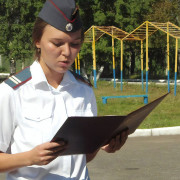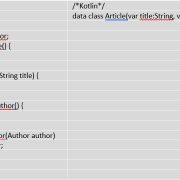Тест на present perfect simple
Содержание:
Present Perfect Key Words
There are some key words used with the present perfect that include the following:
- For
- Since
- Already
- Yet
- Still
For
For is used for periods of time. Some examples of time are years, days, or hours.
Examples:
- I have been a teacher for 4 years.
- Karen has lived in Toronto for 8 years.
- They have been here for 2 hours.
Since
Since is used for specific dates.
Examples:
- I have been a teacher since
- Karen has lived in Toronto since
- They have been here since 5:00 pm.
Watch how for and since are similar but different.
- I have been a teacher since 2004. I have been a teacher for 9 years.
- He has not eaten since 3 pm. He has not eaten in 6 hours.
To practice the difference between for and since, use this test:
Yet
“Yet” is for negative sentences and questions. It always goes at the end of the sentence. Here are some examples:
Negative Sentences
- I have not eaten dinner yet.
- She has not seen that movie yet.
- They have not arrived yet.
Questions
- Have you eaten dinner yet?
- Has he seen that movie yet?
- Has Tina arrived yet?
Already
“Already” is for affirmative sentences. It can go at the end of a sentence:
- I have eaten dinner already.
- She has taken the test already.
- Dan and Jen have had breakfast already.
It also goes between the auxiliary and the main verb:
- I have already eaten dinner.
- She has already taken the test.
- Dan and Jen have already had breakfast.
Here are some more examples:
- She has already
- He has left already.
- Jake and Fred have already finished their work.
Still
Still is for negative sentences. It goes before the auxiliary verb. Here are some examples:
- I still have not eaten dinner.
- She still has not arrived.
- Chris still hasn’t woken up.
To practice the difference between already, still, and yet, try this test:
Present Perfect Continuous or Present Perfect Simple Test
Тест на Present Perfect Continuous и Present Perfect Simple подходит для школьного тестирования с углубленным изучением: 3, 4, 5; а также 6, 7, 8, 9, 10 класс. При необходимости изучите соответствующие материалы в разделе Грамматика английского языка.
Выберите наиболее подходящий вариант:
|
1 |
We ___ to the theatre since last month. | ||||
|
A |
haven’t been |
B |
haven’t been going |
C |
hasn’t gone |
|
2 |
My friends and I ___ since 2 o’clock. | ||||
|
A |
have sunbathed |
B |
have been sunbathing |
C |
has been sunbathing |
|
3 |
Sally ___ news since she left university. | ||||
|
A |
have reported |
B |
has been reporting |
C |
has reported |
|
4 |
Jane is abroad. She ___ three countries. | ||||
|
A |
has already been visiting |
B |
have already visited |
C |
has already visited |
|
5 |
___ dancing lessons? | ||||
|
A |
Has you ever taken |
B |
Have you ever taken |
C |
Has you ever been taking |
|
6 |
I want to buy a new flat. I ___ money for ages. | ||||
|
A |
has been saving |
B |
have saved |
C |
have been saving |
|
7 |
My uncle is a doctor. He ___ lots of vital operations. | ||||
|
A |
has made |
B |
has been making |
C |
have made |
|
8 |
Jack is cold. He ___ for too long. | ||||
|
A |
has been swimming |
B |
have been swimming |
C |
has swum |
|
9 |
Den ___ championships before. | ||||
|
A |
has never won |
B |
hasn’t never won |
C |
has never been winning |
|
10 |
We ___ in this café before. | ||||
|
A |
haven’t been eating |
B |
haven’t eaten |
C |
hasn’t eaten |
|
11 |
I don’t want to go out. The cold wind ___ since morning. | ||||
|
A |
have been blowing |
B |
has blown |
C |
has been blowing |
|
12 |
It’s the first time Martin ___ ill. | ||||
|
A |
has been falling |
B |
has fallen |
C |
have fallen |
|
13 |
How long ___ this research? | ||||
|
A |
have you been making |
B |
has you been making |
C |
have you made |
|
14 |
___ many people to our wedding ceremony? | ||||
|
A |
Has you invited |
B |
Have you been inviting |
C |
Have you invited |
|
15 |
Cathy ___ since 2 o’clock. She is exhausted. | ||||
|
A |
have been driving |
B |
has driven |
C |
has been driving |
|
16 |
Bob ___ his new pencil case. | ||||
|
A |
have already lost |
B |
has already lost |
C |
has already been losing |
|
17 |
We ___ to such a big park before. | ||||
|
A |
have never been |
B |
has never been |
C |
haven’t never been |
|
18 |
My eyes are tired. I ___ since afternoon. | ||||
|
A |
has been reading |
B |
have been reading |
C |
have read |
|
19 |
He ___ in London for two weeks now. | ||||
|
A |
has been staying |
B |
have been staying |
C |
has stayed |
|
20 |
We ___ the rent yet. | ||||
|
A |
hasn’t paid |
B |
haven’t been paying |
C |
haven’t paid |
|
21 |
___ books for a long time? | ||||
|
A |
Has you been writing |
B |
Have you been writing |
C |
Have you written |
|
22 |
Marta __ in the shopping centre for 2 hours. | ||||
|
A |
have been |
B |
has been |
C |
has being |
|
23 |
I ___ to go scuba diving. | ||||
|
A |
have always wanted |
B |
have always been wanting |
C |
has always wanted |
|
24 |
Where have you been? Mom ___ for you all day. | ||||
|
A |
has looked |
B |
have been looking |
C |
has been looking |
|
25 |
___ the latest news? | ||||
|
A |
Have you been hearing |
B |
Have you heard |
C |
Has you heard |
Пройти тест онлайн без регистрации: тест на сравнение Present Perfect Continuous и Present Perfect Simple
Скачать тест: Present Perfect Continuous и Present Perfect Simple в формате pdf – Present Perfect Continuous Present Perfect Simple Test
Тест на Present Perfect Continuous и Present Perfect Simple с ответами
|
1 |
A |
|
2 |
B |
|
3 |
B |
|
4 |
C |
|
5 |
B |
|
6 |
C |
|
7 |
A |
|
8 |
A |
|
9 |
A |
|
10 |
B |
|
11 |
C |
|
12 |
B |
|
13 |
A |
|
14 |
C |
|
15 |
C |
|
16 |
B |
|
17 |
A |
|
18 |
B |
|
19 |
A |
|
20 |
C |
|
21 |
B |
|
22 |
B |
|
23 |
A |
|
24 |
C |
|
25 |
B |
Примеры вопросительных предложений и ответов
Чтобы составить вопрос в Present Perfect, нужно have/has вынести вперед, перед подлежащим. Например:
- He has done it (Он сделал это)
- Has he done it? (Он сделал это?)
Краткий ответ состоит из Yes + местоимение, заменяющее подлежащее + have / has. No + местоимение, заменяющее подлежащее + haven’t / hasn’t. Например:
- Have they arrived? – Yes, they have. (Они приехали? – Да.)
- Has Nina called you? – No, she hasn’t. (Нина звонила тебе? – Нет.)
Специальный вопрос начинается с вопросительных слов Where, What, When, Why, How и тд.
Why has he done it? (Почему он это сделал?)
| Вопрос | Перевод | Ответ | Перевод |
| Have you ever been to Paris? | Ты когда-либо был в Париже? | Yes, I have. / No, I haven’t. | Да / Нет |
| Have they invited you? | Они тебя пригласили? | Yes, they have. / No, they haven’t. | Да / Нет |
| Have you called Jane? | Ты позвонил Джейн? | Yes, I have. / No, I haven’t. | Да / Нет |
| Have we met before? | Мы раньше встречались? | Yes, we have. / No, we haven’t. | Да / Нет |
| Where have you put the bag? | Куда ты положил сумку? | On the sofa. | На диван. |
| Has she done her homework? | Она сделала домашнюю работу? | Yes, she has. / No, she hasn’t. | Да / Нет |
| Has he applied for University? | Он подал документы в университет? | Yes, he has. / No, he hasn’t. | Да / Нет |
| Has Kitty signed the contract? | Китти подписала контракт? | Yes, she has. / No, she hasn’t. | Да / Нет |
| Has the lesson started? | Урок начался? | Yes, it has. / No, it hasn’t. | Да / Нет |
| What presents has she bought? | Какие подарки она купила? | Toys and sweets. | Игрушки и сладости. |
И напоследок, чтобы закрепить материал, советую вам посмотреть видео по всем трем видам предложений в Present Perfect:
Вам может быть интересно:
- Упражнения на Present Perfect с ответами
- Тест на Present Perfect
- Примеры предложений в Past Simple
- Примеры предложений в Present Simple
Present Perfect Uses
The present perfect has 2 main uses:
- Actions in the past with no specific time
- Actions in the past that continue into the present
No Specific Time
Present perfect is for actions in the past with no time. This could be for a number of reasons:
- Time is unknown
- Time is not important
- The action has happened many times
Let’s think about a few examples.
- He has found his keys.
- I have gone to New York City 3 times.
- I have not finished my project.
- We have seen that movie many times.
In this example, it is not important when he found his keys. We only care he found them.
This example shows an action that has happened many times. Because the present perfect has no specific time, it is not used with time phrases. These examples are incorrect.
- I have eaten lunch yesterday.
- She has taken an English class last year.
In a situation with a specific time, use the simple past. For example:
- I ate lunch yesterday.
- She took an English class last year.
Actions that Continue to the Present
Some actions start in the past, but they continue in the present. This is shown with the present perfect.
Examples:
I have lived in Paris for 3 years.
(I live in Paris now.)
She has worked as a teacher since 2003.
(She started to teach in 2003. She is a teacher now.)
I have been a student at this school for 2 years.
(I am still a student.)
Present Perfect Mistakes
Watch out for these common mistakes when you are using the present perfect.
Not using the proper form of the verb
- I have went to the park.
- She has ate dinner.
Present perfect always uses a past participle.
- I have gone to the park.
- She has eaten dinner.
Also, watch out for mistakes with irregular verbs.
- I have boughten a jacket. (bought)
- She has flied in an airplane. (flown)
Using the present perfect with a specific time
- I have visited Toronto last year.
- Yuri has watched the movie yesterday.
Remember: Present perfect never uses a specific time. That is simple past.
Not using ever and never properly
- Did you ever see that movie?
- I have ever heard that song.
- Have you never gone to California?
If you would like to practice more with the present perfect, you can also try the free tests at learnEnglish-online:
More Grammar Lessons and Tests
Improve your English grammar with more lessons and exercises. Click on the links below to learn and practice.
- Adjectives
- Articles
- Conditionals
- Countable and Uncountable Nouns
- Gerunds and Infinitives
- Modal Verbs
- Passive Voice
- Prepositions
- Pronouns
- Questions
- Rather and Prefer
- Subject Verb Agreement
- Used To
- Verb Tenses

Примеры отрицательных предложений
Отрицательная форма в Present Perfect образуется с помощью частицы not после глагола have/has и глагола с окончанием -ed или в третьей форме.
Вместо частицы not может использоваться слово never (никогда). Хотя в русском языке мы используем частицу не после никогда “я никогда не…”, в английском слова never достаточно. Например: I have not been there (Я не был там) – I have never been there (Я никогда не был там).
В разговорной речи распространена сокращенная форма: have not – haven’t, has not – hasn’t.
| Полная форма | Сокращенная форма | Перевод |
| I have not received any letter. | I haven’t received any letter. | Я не получил накакого письма. |
| They have not been to the museum yet. | They haven’t been to the museum yet. | Они еще не были в музее. |
| We have not seen them lately. | We haven’t seen them lately. | Мы их не видели в последнее время. |
| I have not thought of it since yesterday. | I haven’t thought of it since yesterday. | Я не думал об этом со вчера. |
| My parents have not used Skype before. | My parents haven’t used Skype before. | Мои родители раньше не пользовались скайпом. |
| She has not come back from school yet. | She hasn’t come back from school yet. | Она еще не вернулась из школы.) |
| He has not lost his ticket. | He hasn’t lost his ticket. | Он не потерял свой билет. |
| The plane has not taken off yet. | The plane hasn’t taken off yet. | Самолет еще не взлетел. |
| Lola has not been there for 5 years. | Lola hasn’t been there for 5 years. | Лола не была там 5 лет. |
| Nick has not finished his exam yet. | Nick hasn’t finished his exam yet. | Ник еще не закончил свой экзамен. |




